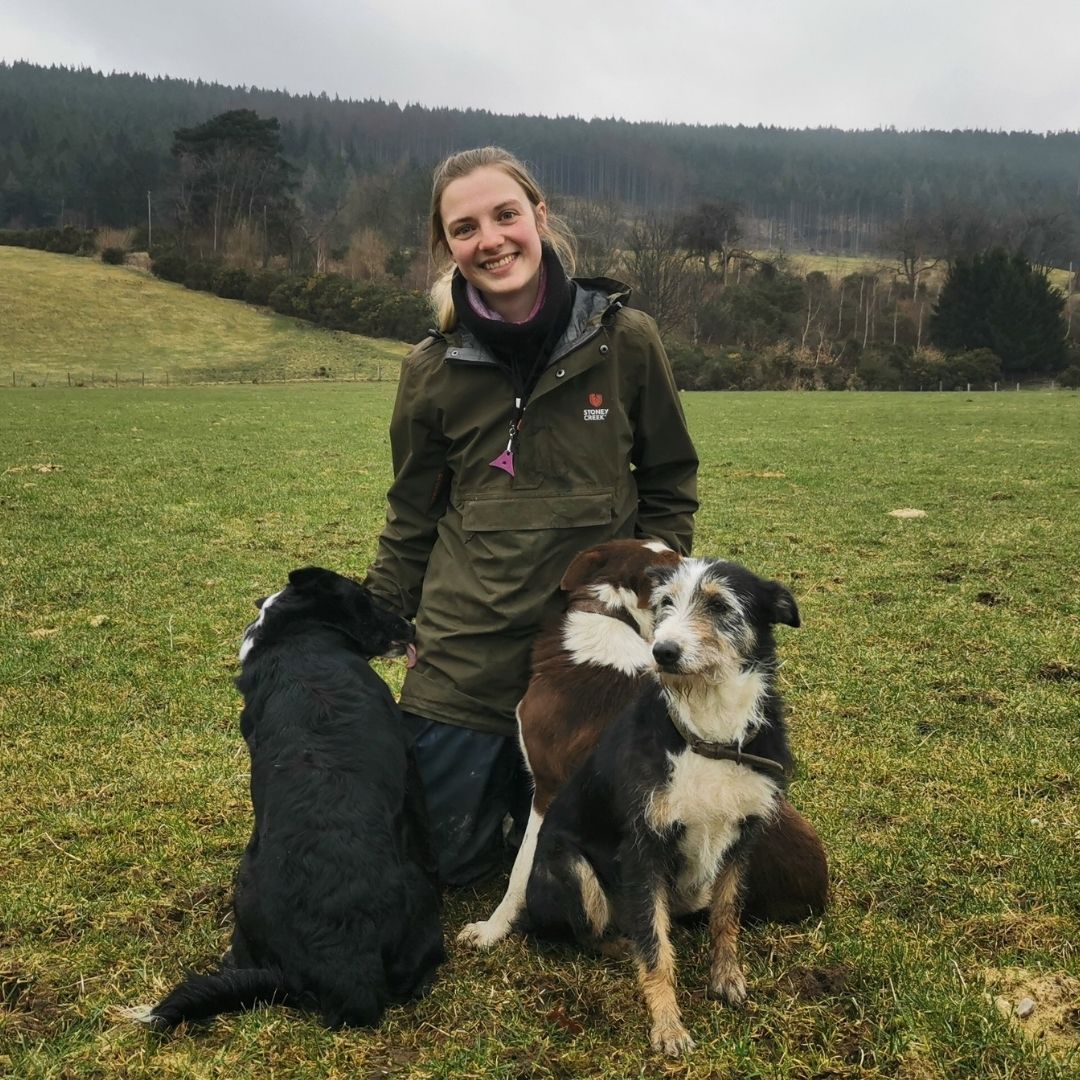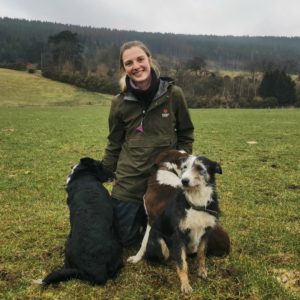
08 Mar ‘Enthusiasm, Passion and Sheer Determination’

This month’s Courier and Press & Journal Farm Journal contribution from Amy Jo Reid
Amy Jo Reid lives near Rothes in Moray with her partner and son and is a self-employed shepherd. She runs a contract flock of 600 organic ewes, 250 breeding ewes and 200 hogs of her own on seasonal lets, trains sheepdogs and ultrasound scans ewes through the Winter. Amy is a National Sheep Association Next Generation Ambassador (2020-21) and has just graduated from this year’s Scottish Enterprise Rural Leadership Programme. Amy is also currently SAYFC North Region Agri Affairs Chairman, East Aberdeenshire District Chairman and a member of Udny JAC.
I’ve heard it said, “There aren’t any youngsters in farming.” The average age of a UK farmer is now at 59 years old, so I would almost agree with that statement.
Almost.
In the agricultural census, the number of farmers aged under 35 has remained at 3% since 2003, so we are not in decline, at least.
Personally, I don’t agree there are no youngsters in farming, when I see the 10-strong pack of gatherers, all under 30, that walk the hills of Tomintoul, the influx of passionate scholars at The Oxford Farming Conference or the thriving meetings that our local young famers club attracts.
So us ‘youngsters’ are here. And we are keen. The issue is not the lack of youngsters, but the lack of opportunities in agriculture, forcing our enthusiastic workforce to find employment elsewhere.
Over the years, the tragic loss of hefted hill flocks to more lucrative forestry plantations has lost vital hill and farmland, along with opportunities, shepherds, gamekeepers and their families from our rural areas. In lower climates, we have seen the disappearance of many of the smaller, traditional ‘family farms’ which have amalgamated into huge enterprises, allowing large and established businesses to only grow larger. Sadly, a ‘traditional farm’ of even 100 acres struggles to afford a comfortable living for a young family, forcing a partner to find income from another stream. Coupled with land prices having reached an all-time high, land ownership is now an unrealistic ambition for many.
Thankfully, however, there are many other routes into agriculture and alternatives to land ownership, such as contract and share farming or employment, which don’t seem to count in the ‘Farmer’ age bracket in the agricultural census. Contract and share farming agreements allow young folk to farm on a larger scale, gaining experience and knowledge, without the initial crippling start-up capital required, whilst also allowing the previous generations to pass down their realms of wisdom. Many younger farmers begin their careers on seasonal grass lets and rented grazing, which help us grow our businesses gradually and build good relationships and reputations along the way, opening doors for longer term tenancies or other opportunities.
Employment in the agricultural sector shouldn’t be forgotten about either – with many professions from shepherds to stock-people, and farm managers to tractor drivers, there are a variety of ways to be actively farming at a grass roots level. And it doesn’t have to be on one farm! The majority of contractors are aged under 40 – from shearers and sheep scanners to foot trimmers and artificial insemination technicians. The advancement of technology and improved production efficiency has also created jobs, like nutritionists, agronomists, researchers or specialised mechanics – so there is literally something for everyone.
Our levy bodies and organisations are now realising the potential that enthusiastic youth can bring to the table. Both the National Sheep Association and National Farmers Union Scotland have ‘Next Generation’ Groups, Ringlink (Scotland) Ltd have teamed up with SRUC to offer a Modern Apprenticeship scheme and Quality Meat Scotland have launched their new Young Producers Discussion Group, amongst many others.
Agriculture is also high on the agenda for many school curriculums; Speyside High School offer their National 4/5 students an apprenticeship subject, where they visit a farm every Wednesday to gain practical experience. Dalriada High School in Northern Ireland teach Agriculture at GCSE level, then students specialise into a sector they wish to study to A level. And we cannot fail to mention the amazing hard work and huge range of resources available through the Royal Northern Countryside Initiative (RNCI) and the Royal Highland Education Trust (RHET), alongside classroom initiatives like the AHDB’s ‘Grow your own potatoes’ kits.
So the next time you’re at a mart, an agricultural show (when restrictions lift!) or have a contractor in – look to see just how many of us youngsters are actually there; full of enthusiasm, passion and sheer determination. It might just surprise you.

